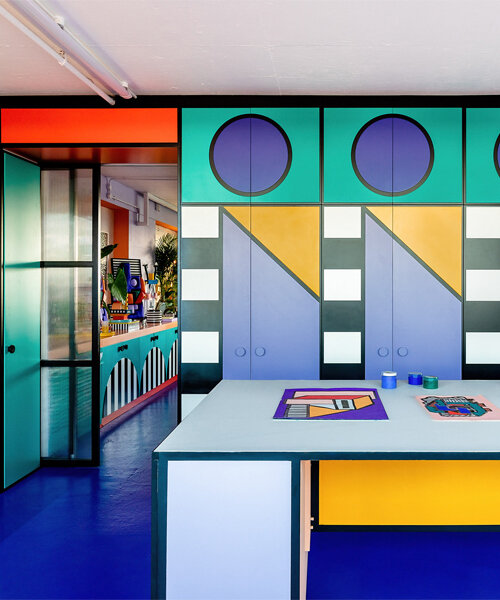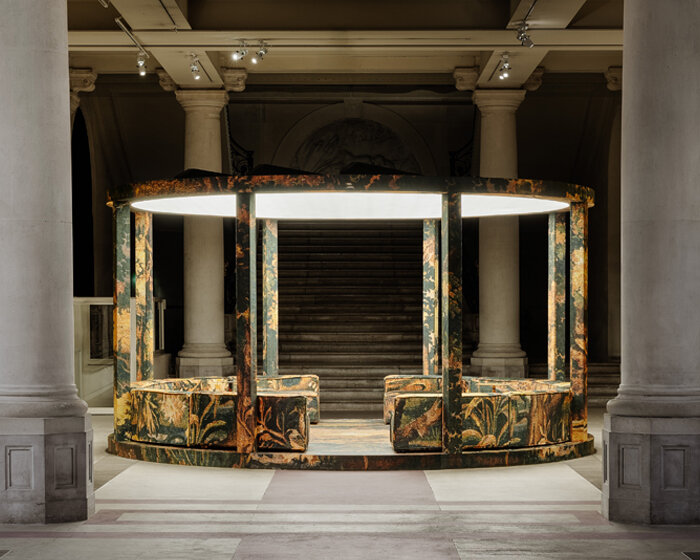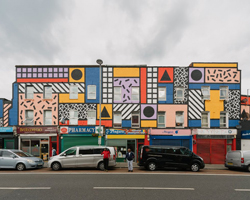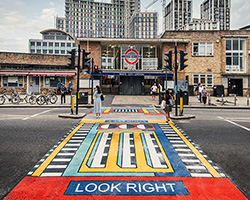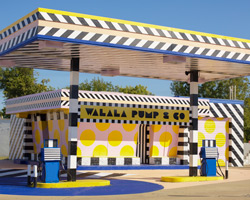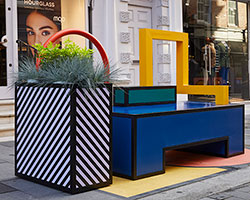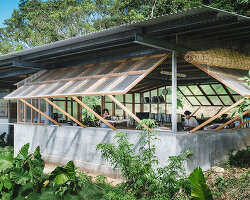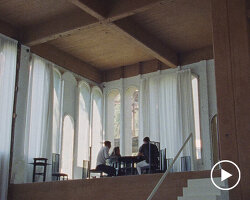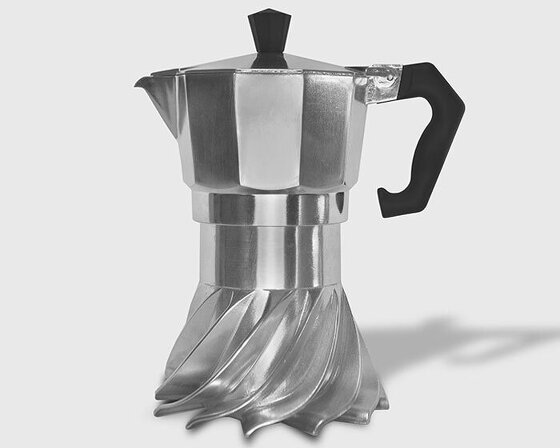our department revamps camille walala’s studio in london
Pairing creative flair with technical complexity, Camille Walala‘s newly transformed studio, brought to life by UK-based Our Department, is an artistic statement in its own right. This space, set at London’s Regent Studios, results from a collaboration between two creative duos. Camille Walala and Julia Jomaa have collaborated for years on their artistic projects, whereas Our Department (aka Simon Sawyer and Gustave Andre) is experienced with helping artists turn their abstract ideas into functional reality. Together, they’ve created a bold and imaginative space featuring impressively intricate relief panels inspired by Walala’s public artwork.
Having moved to London over 25 years ago, Camille has spent time in many studios. Her first was a table in a basement with no windows, and when she first met Julia, they were sharing a desk in Dalston alongside ten other creatives. Now, on the seventh floor of Regent Studios, it’s a proud moment for the whole studio team.

all images © Taran Wilkhu
manifesting the designer’s aesthetic in material terms
Early questions tested the duo’s ambitions: Would they need a builder? How could they manifest Walala’s aesthetic vision in material terms while including a functional workspace? Rather than simply leaving Our Department (see more here) with a design to deliver, Walala and Jomaa (see more here) were involved at every step. Every nook and cranny, every material choice and hidden detail bears the traces of their work together. Initially, Walala was nervous about adding extensive color and pattern, fearing it would clash with ongoing work. However, taking the risk was worth it to create an inspiring space.
‘I enjoy the ambiance of the studio when I’m working. I want to inhabit the aesthetic fully and push it in a new direction,’ notes the designer. ‘But I don’t want any Walala style at home; Julia and I just have artworks by other people we like.’
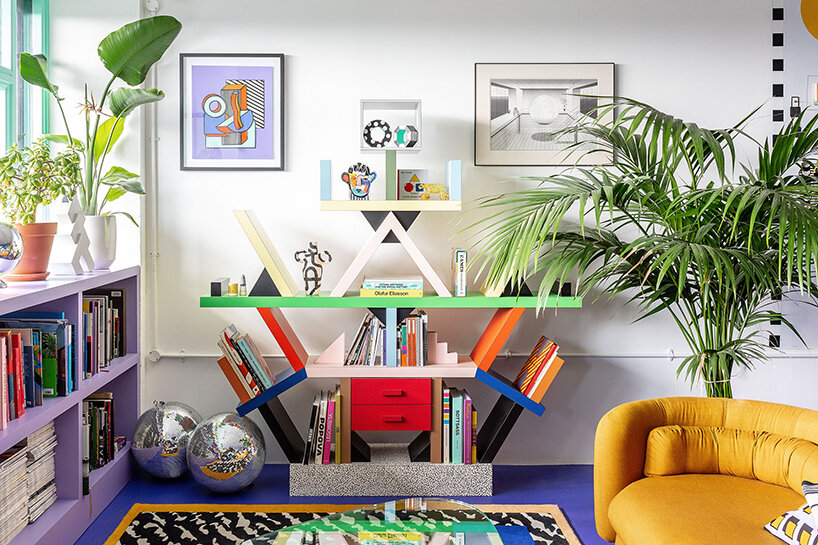
Our Department transformed Camille Walala’s workspace at Regent Studios
The studio is divided between two rooms, one for ‘clean’ work on the computer and the other for ‘messy’ activities such as painting and model making. The two different approaches reflect the scope and scale of the studio’s output: both large-scale public realm projects, often in collaboration with architects, and artworks, such as paintings, sculptures, and ceramic pieces, created by Walala herself. With that said, a lot of crossover work occurs between each space: every project, regardless of its scale, begins in a sketchbook and through drawing, and renders produced digitally might later inspire other physical artworks. This crossover physically translates into a sense of continuity between both rooms. Although different in functions, together they share a similar aesthetic, texture, and spatial mood.
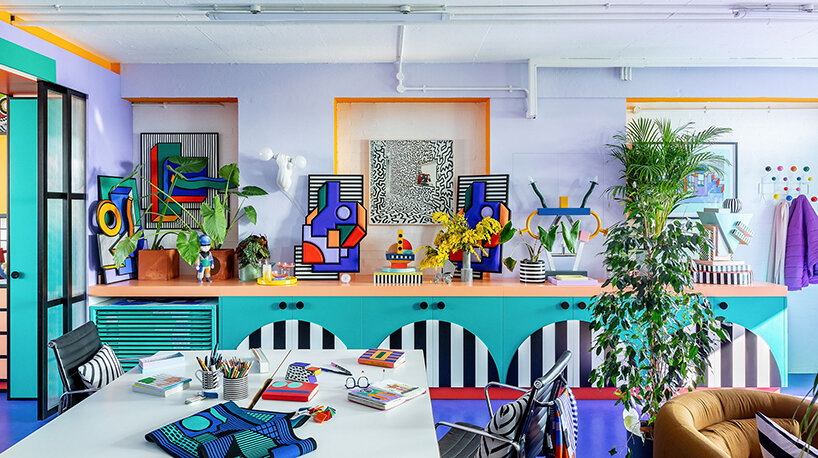
bold and imaginative, the space encapsulates the designer’s tribal pop style
Pairing creative flair with technical complexity
Walala and Jomaa developed a SketchUp model of their overall plans for the space. They were conscious of how certain visual lines should coordinate and how material choices would pair well through the space. To ensure the workspace was both functional and beautiful, the team chose materials that would stand the test of time while preserving striking aesthetic choices. For example, the internal cabinetry is made from high-quality melamine-faced MDF with robust edging, while doors and panels required high-density MDF for stability, with polyurethane paint chosen for its resistance to humidity and light. Other bespoke elements include tulipwood, including the studio’s door handles and desk legs.
Everything in the space is bespoke and precisely designed – yet lots of how pieces work is carefully hidden. To ensure there were no bits of color that peeked out from the cabinets, the edges of the doors were made from their own piece of wood, a simple but solid solution. Using a CNC machine, Our Department developed each unit to be built from many smaller components that could be assembled on-site. Underpinning this is Andre’s experience making furniture and research into modular design. One of the best examples of precision engineering behind the design might be the sliding door, which required the unit to slide within a tight 10 mm space.
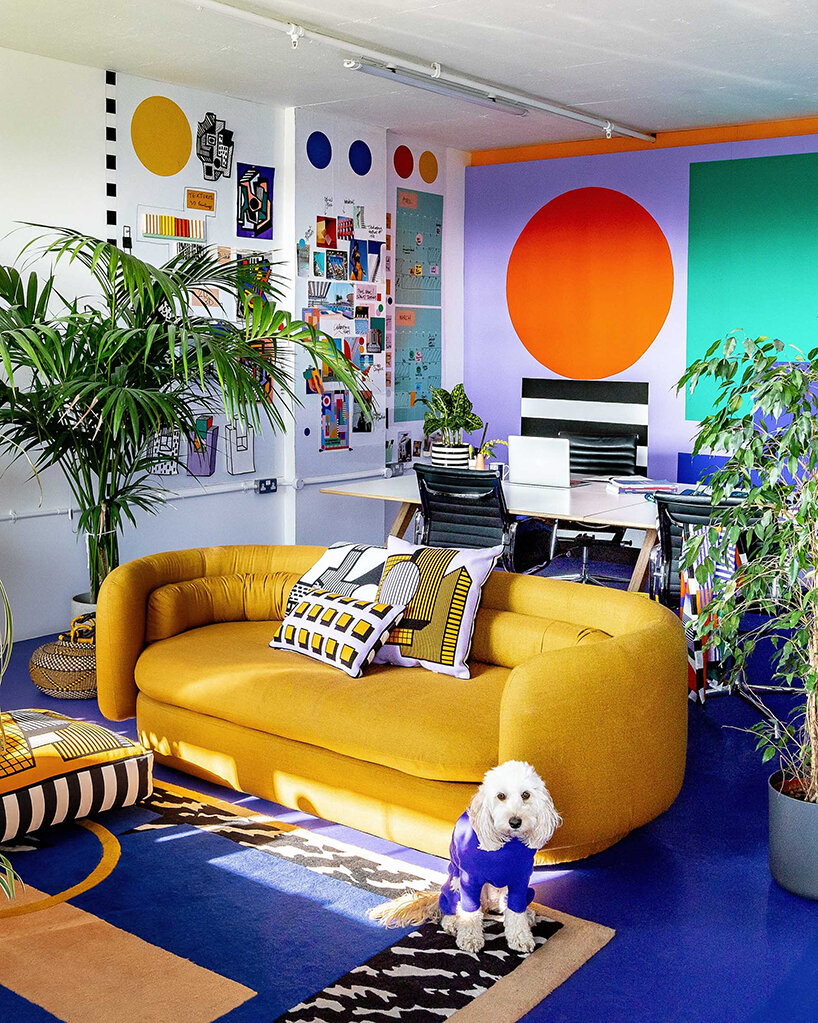
a room dedicated to ‘clean’ computer work
As with previous public-realm artworks, the process involved combining many pieces to create the whole, with each piece cut and spray-painted separately. Reflecting Camille Walala’s distinctive use of black lines in her artwork, colorful components sit in relief to a black background, creating a striking three-dimensionality to the cabinetry. Extensive research into materials, and even particular types of glue, was needed to realize the entire project. It was essential that the space comes across as eye-catching but hard-wearing and easy to clean. To optimize the budget, the team designed every detail with utmost precision; for example, a larger cabinet was designed from standard sheet sizes, creating additional interest while simplifying the manufacturing process.

the ‘messy’ section of the studio dedicated to model making and painting
Despite a successful outcome here, retrofitting always poses a challenge – but repurposing a characterful space can be hugely rewarding. The studio had a lot of particularities the team had to work around, and they went to a huge level of detail from finishing thresholds, hiding an existing gas meter, navigating around pipes, and fitting everything in seamlessly. They kept within precise gaps, often just 30 or 50mm. Like other residents of Regent Studios, when they leave, Walala and Jomaa are contractually obliged to return the space as they found it. Our Department has ensured that all the furniture and structures can be dismantled (even the middle wall in the workspace is freestanding) while still having the sturdiness of a permanent fixture.
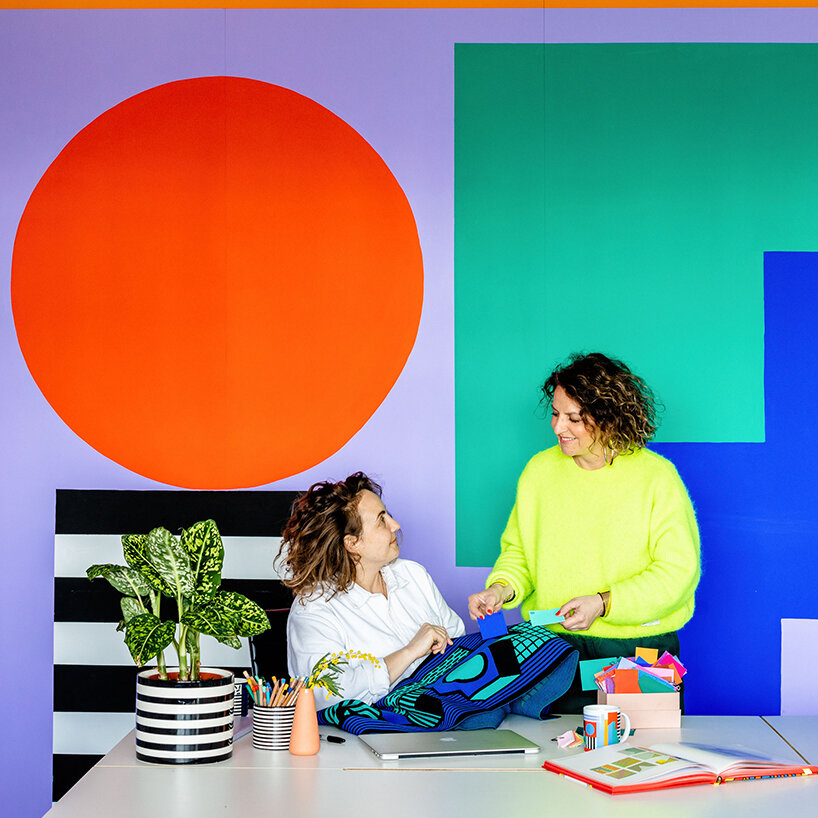
Julia Jomaa and Camille Walala
a continuous partnership
Camille Walala first met Simon Sawyer when she needed a desk for her studio. Pleased with the results, she would turn to him again as her career took off and projects required more extensive technical assistance. Alongside fellow technician Gustave Andre, Sawyer founded Our Department to work behind the scenes with artists, helping them to transform creative ideas into a physical reality – in their fullest technical complexity. Andre and Sawyer come from a shared creative background – the former studying sculpture in art school, the latter music at the Guildhall – and both built practical experience developing public-realm projects, collaborating with engineers, planners, and others involved in a broad fabrication scope.
Having worked together over projects of varying scales, Walala and Sawyer watched each other’s careers develop while fostering a deep sense of creative trust. Their working relationship took off with her exhibition PLAY at NOW Gallery in 2017, and more recent large-scale projects such as ‘Putting Things In Perspective’ at the Box gallery in Plymouth tested the scale and scope of what they could pull off together.
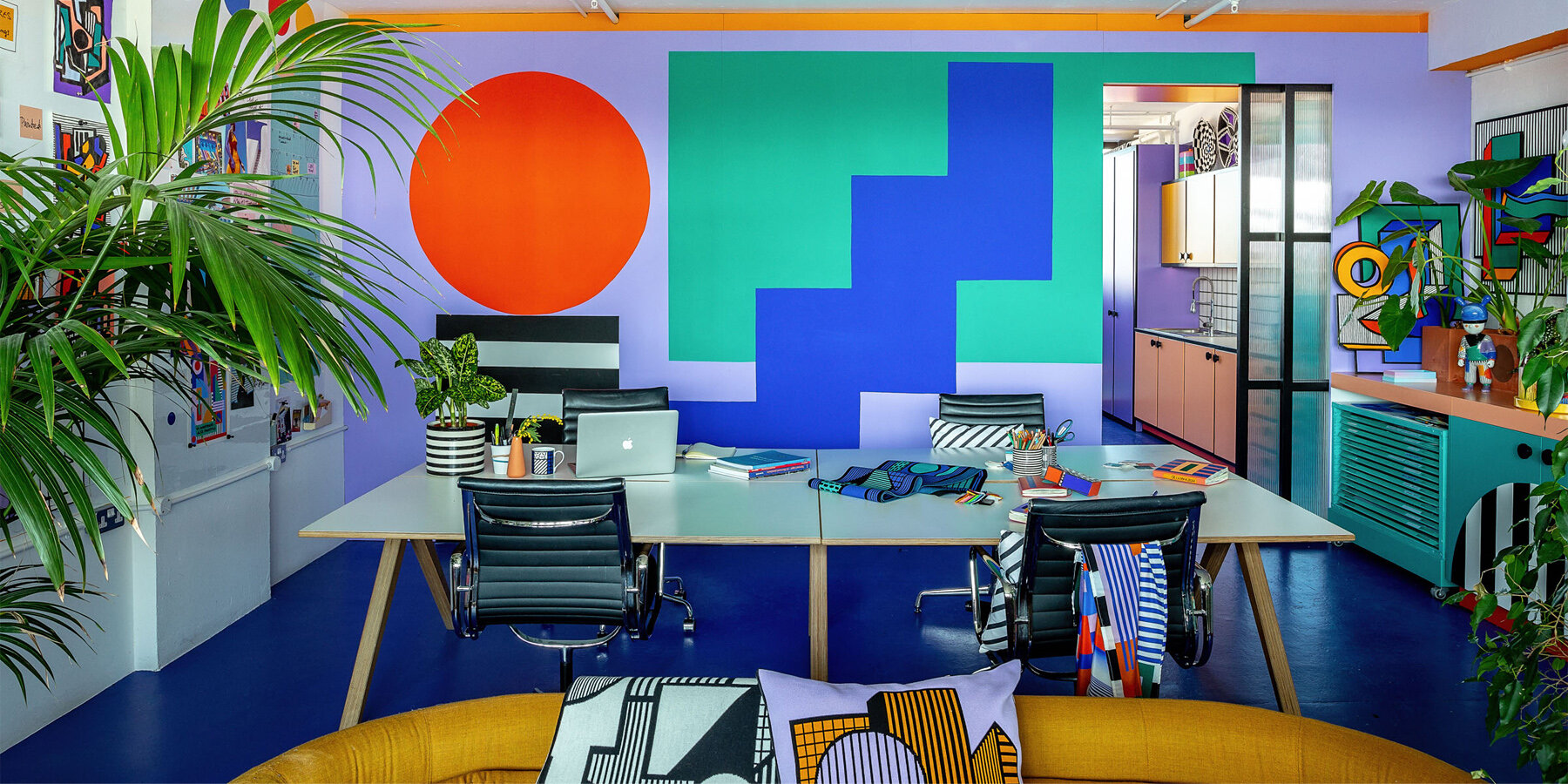
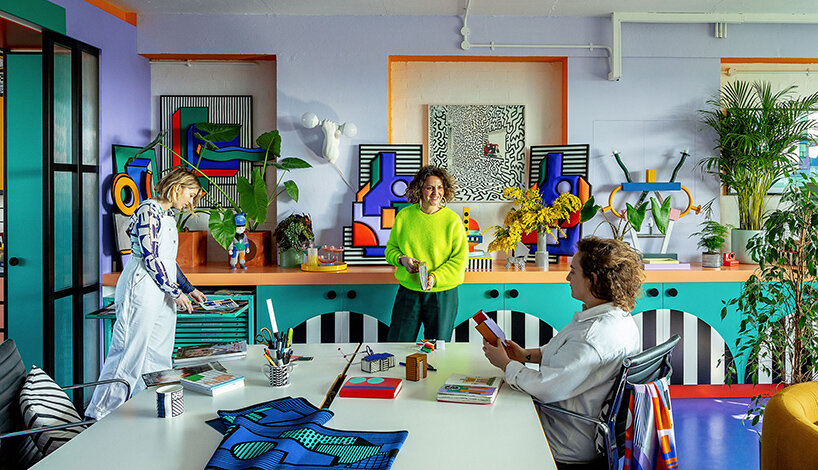
bespoke elements take over every nook and cranny
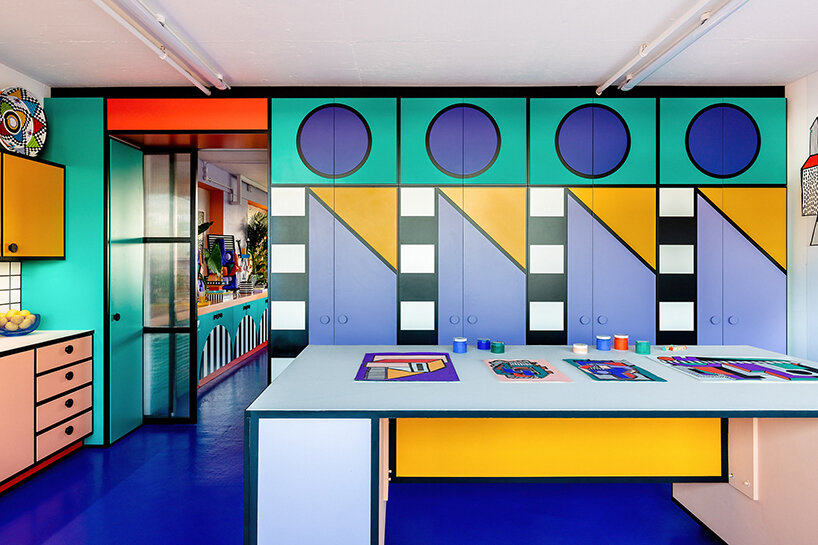
a design guided by technical precision and complexity
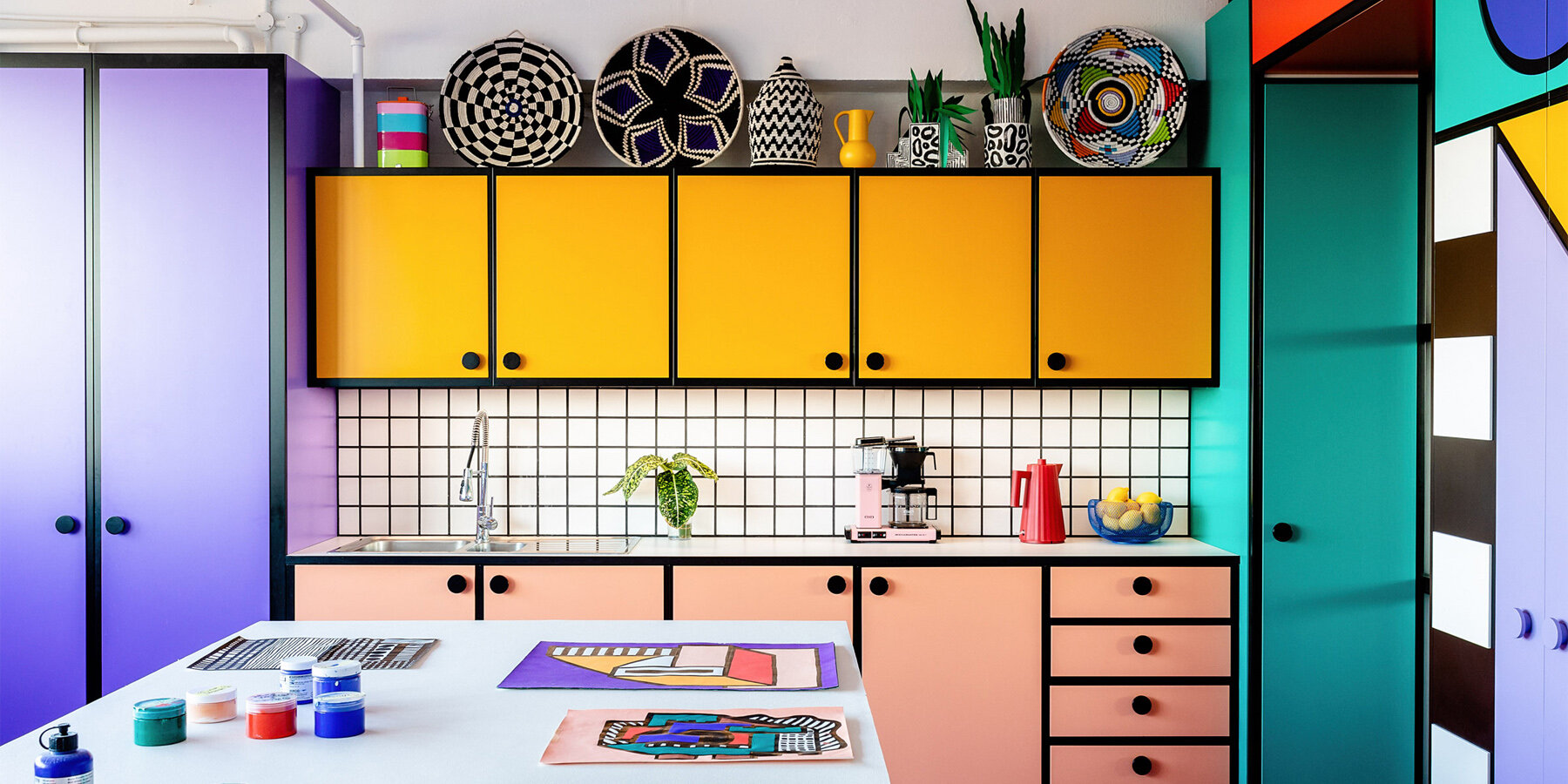
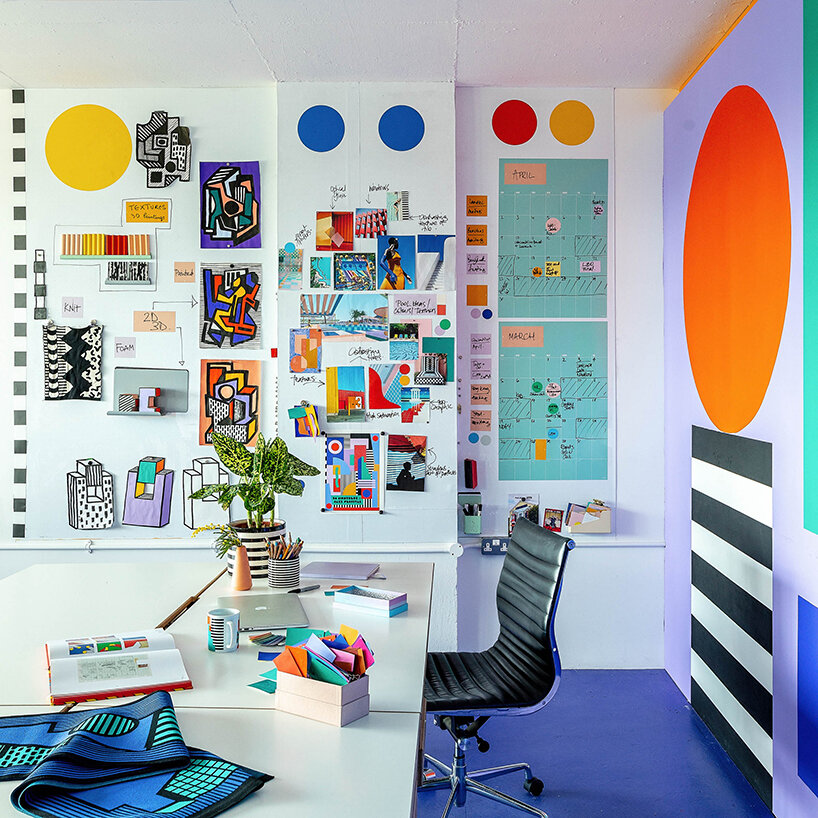
linking every space through similar aesthetic, texture, and mood

Camille Walala at work
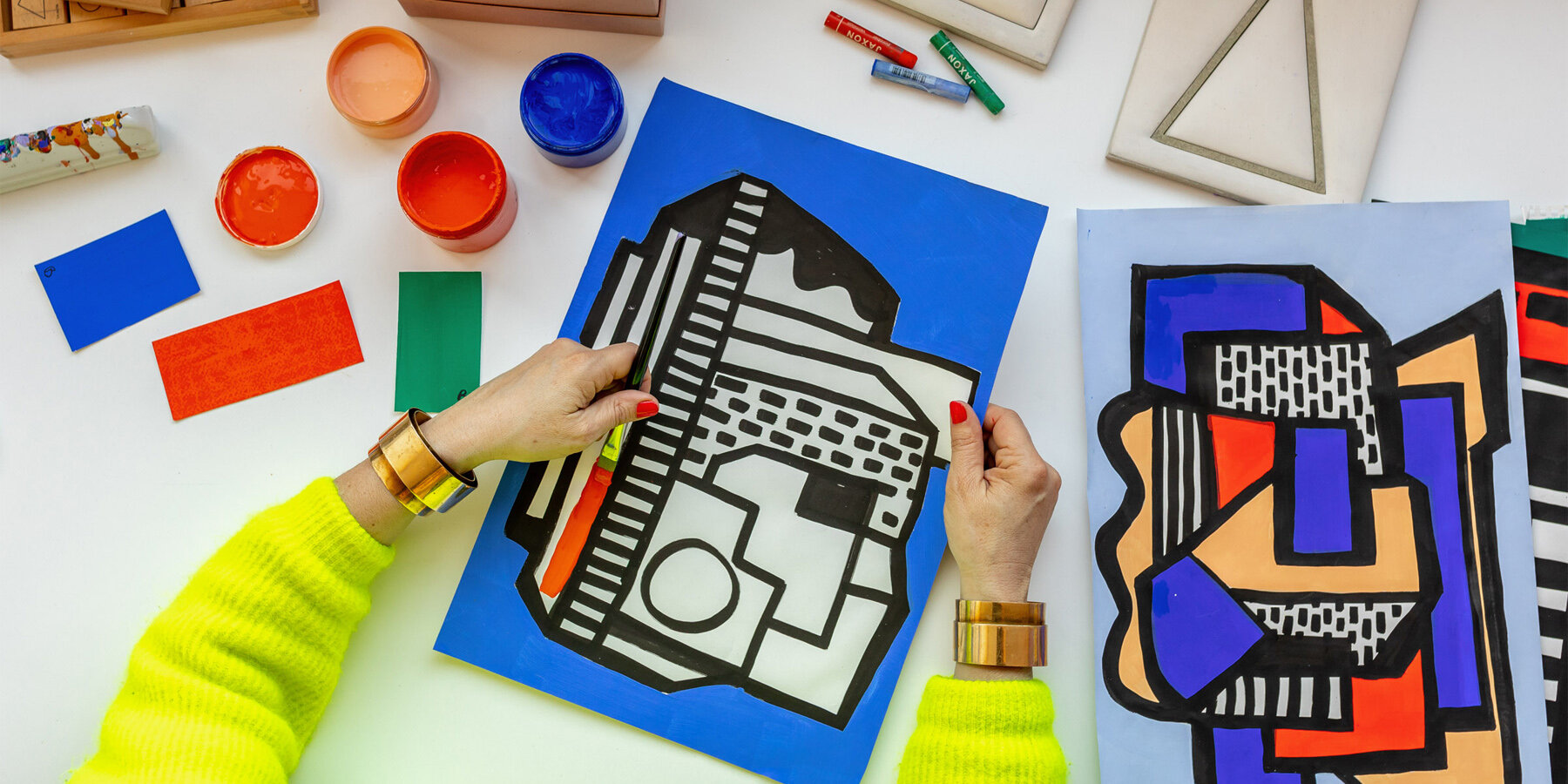
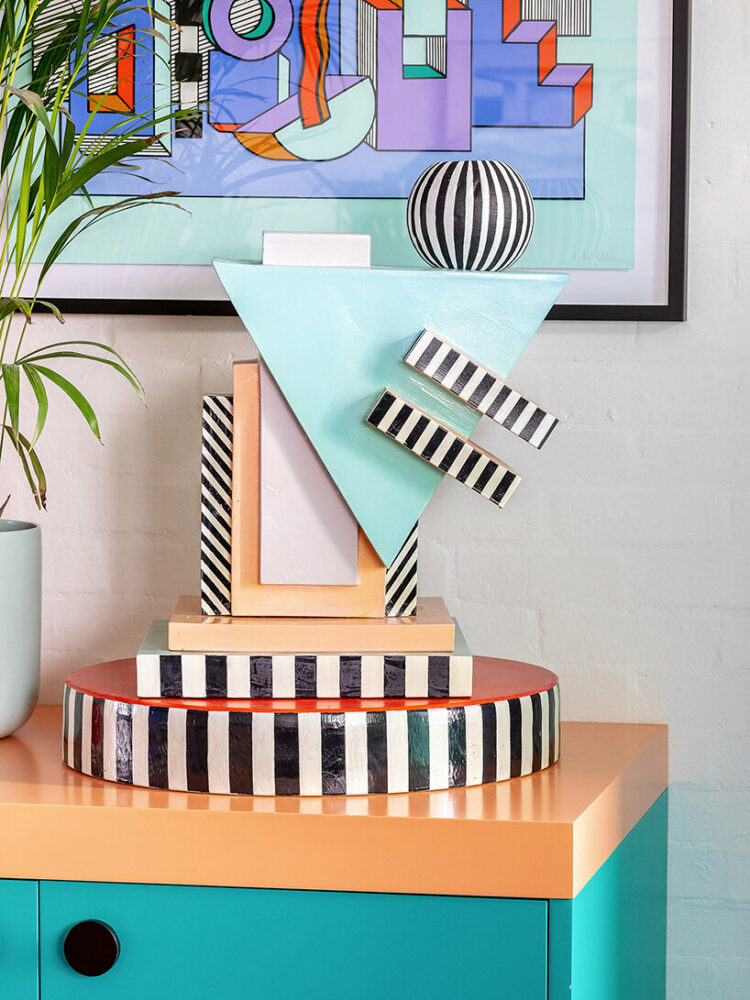
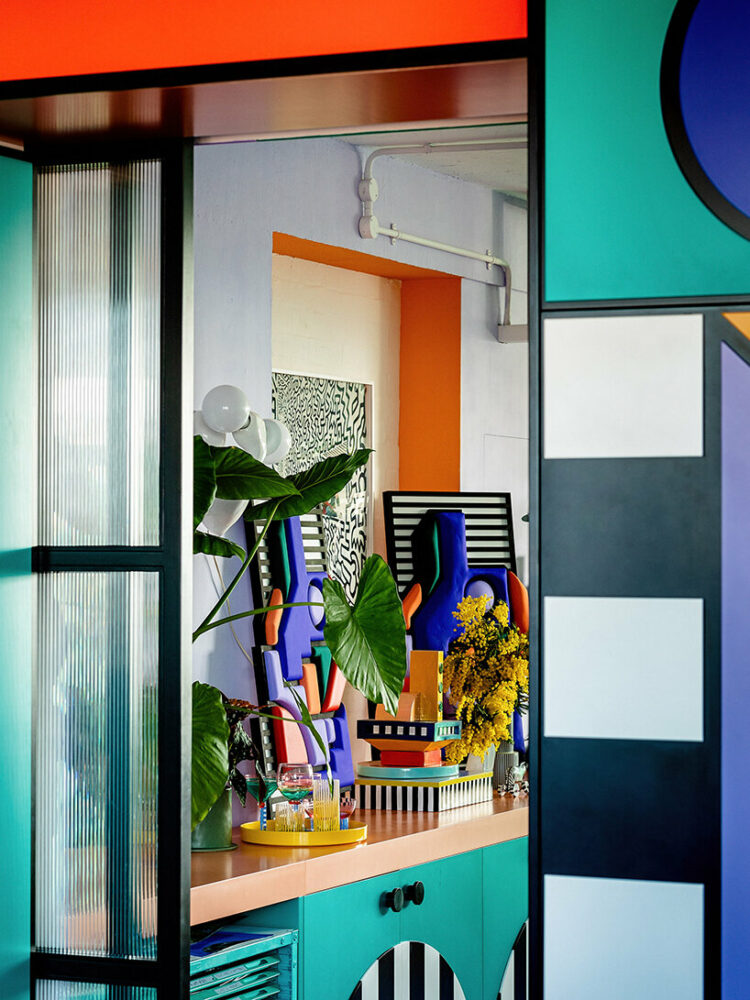
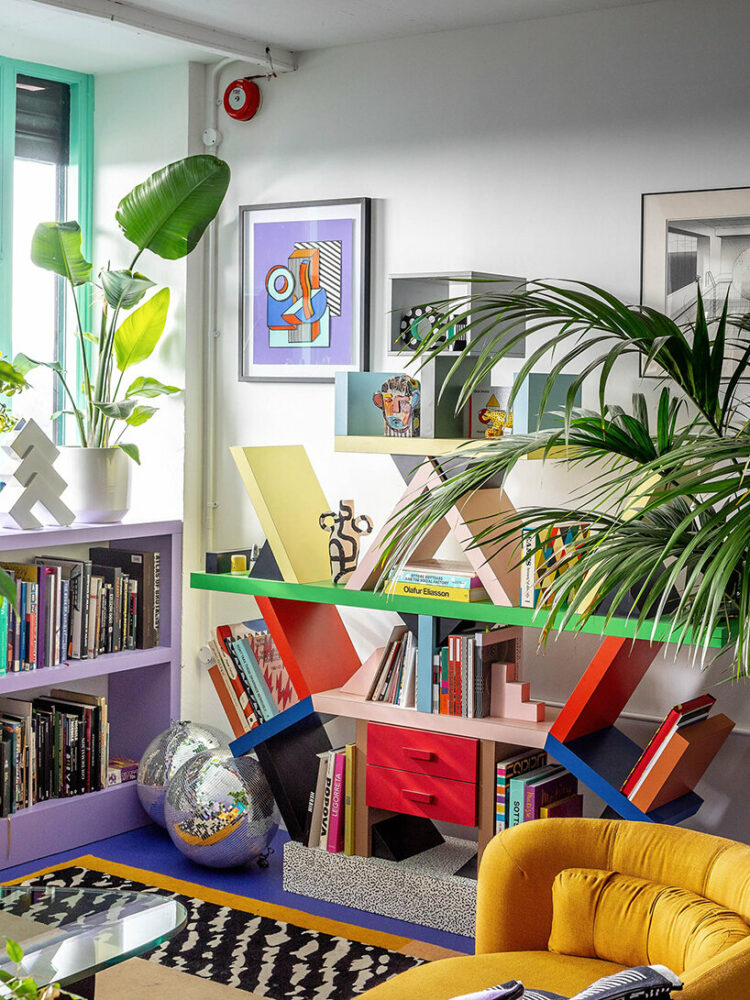
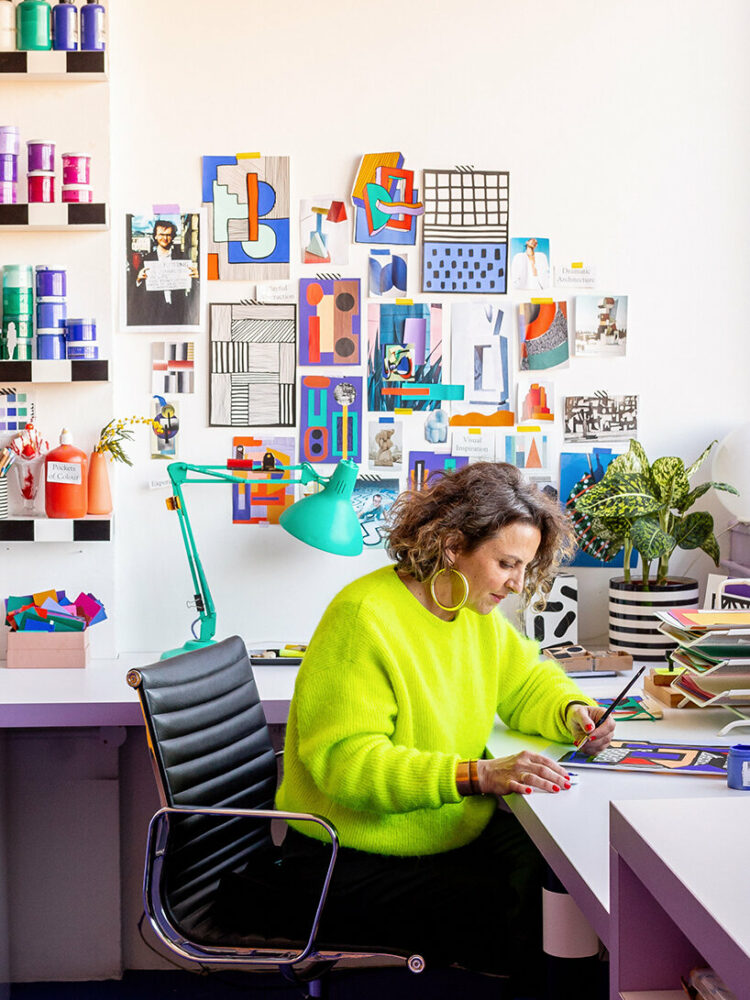
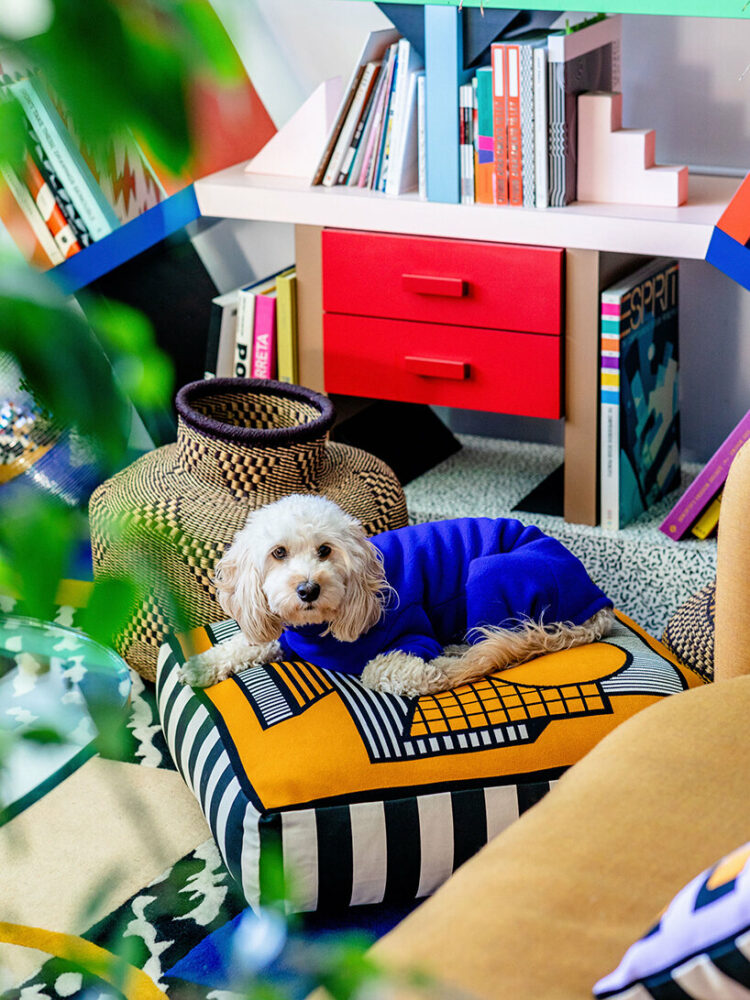
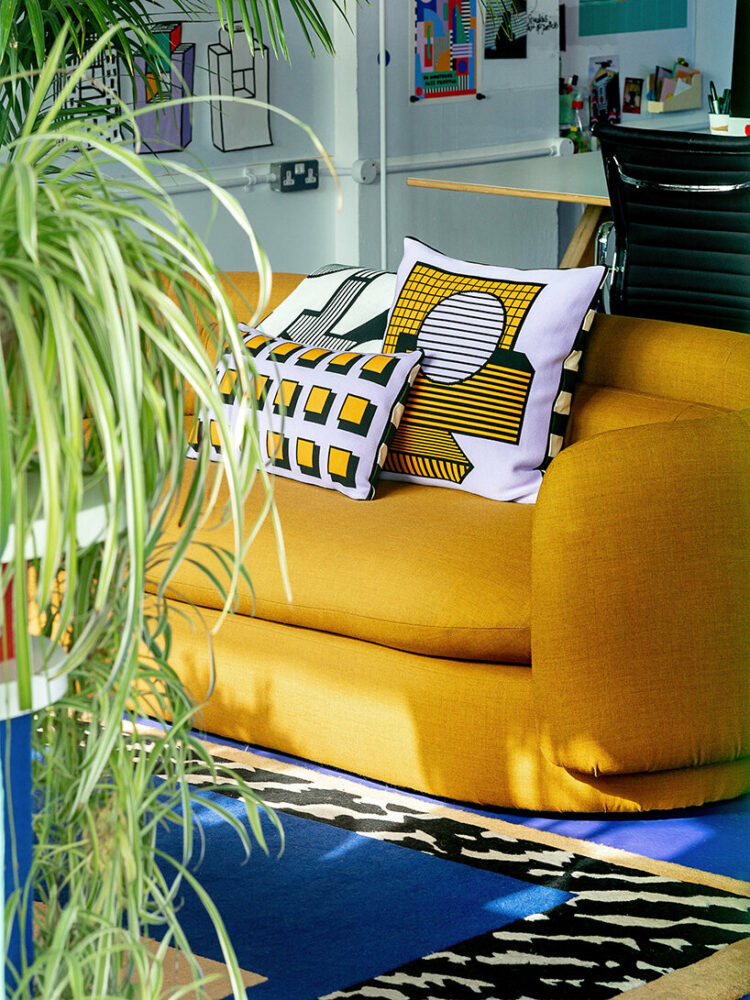
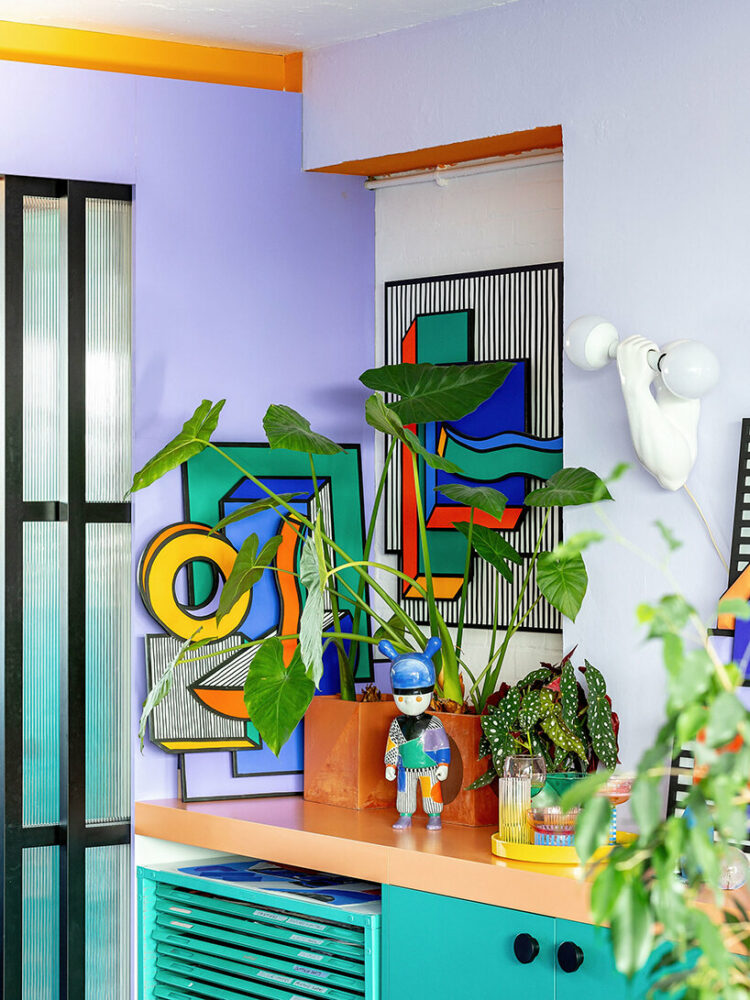
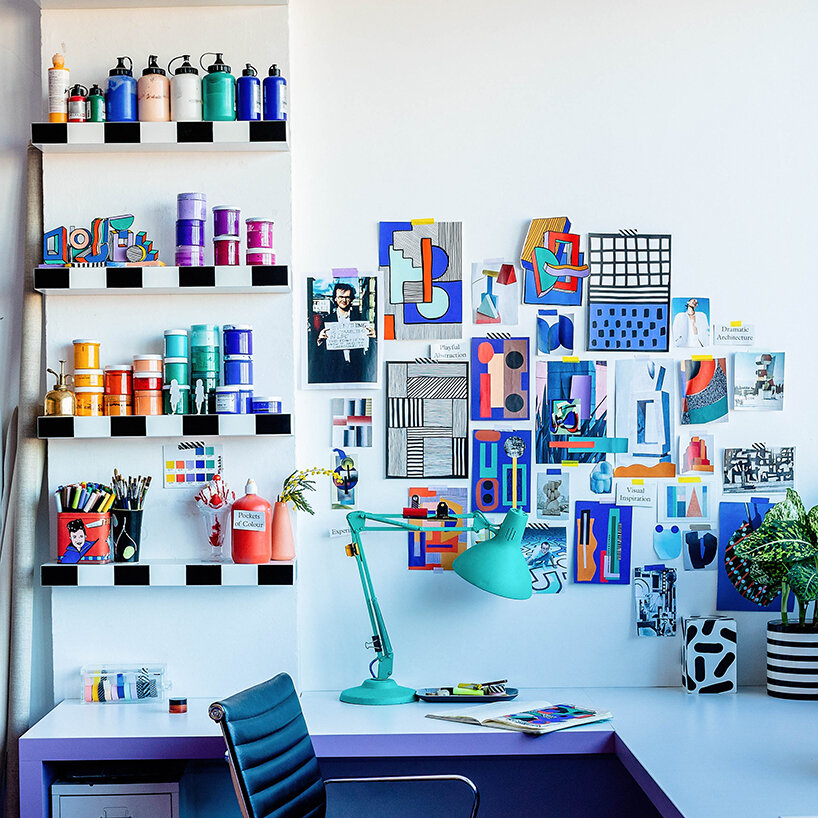
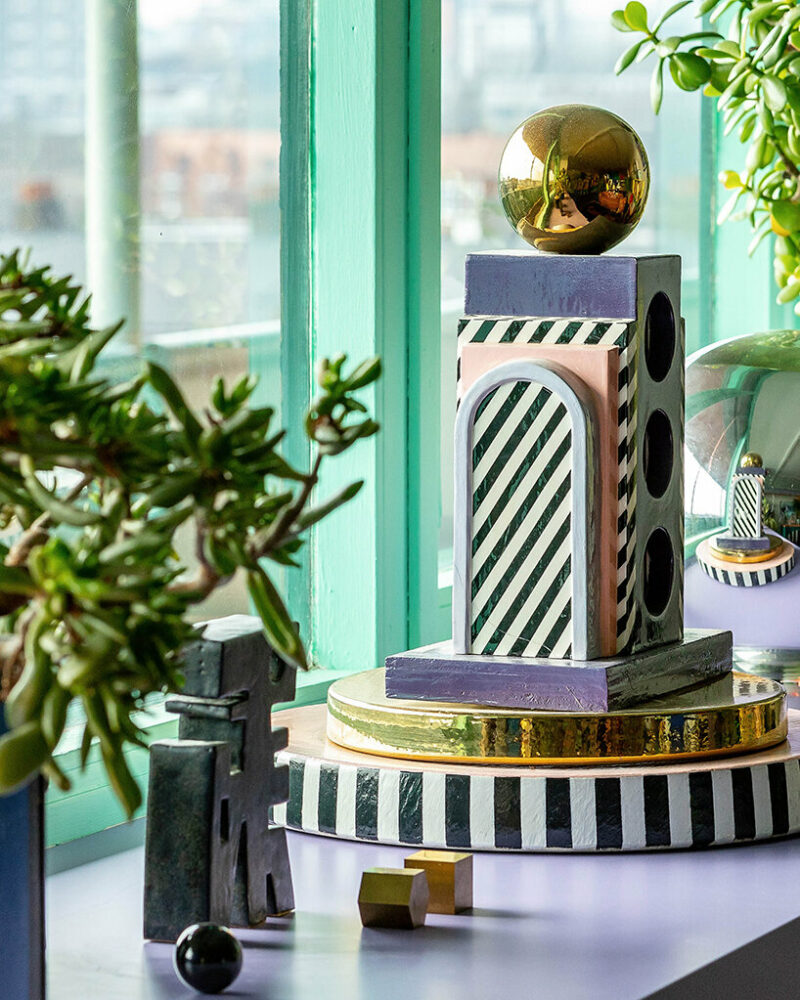
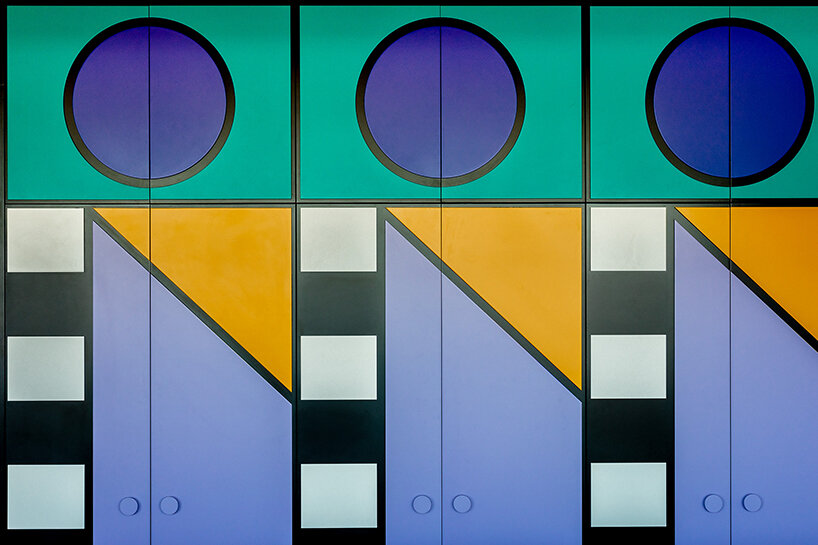
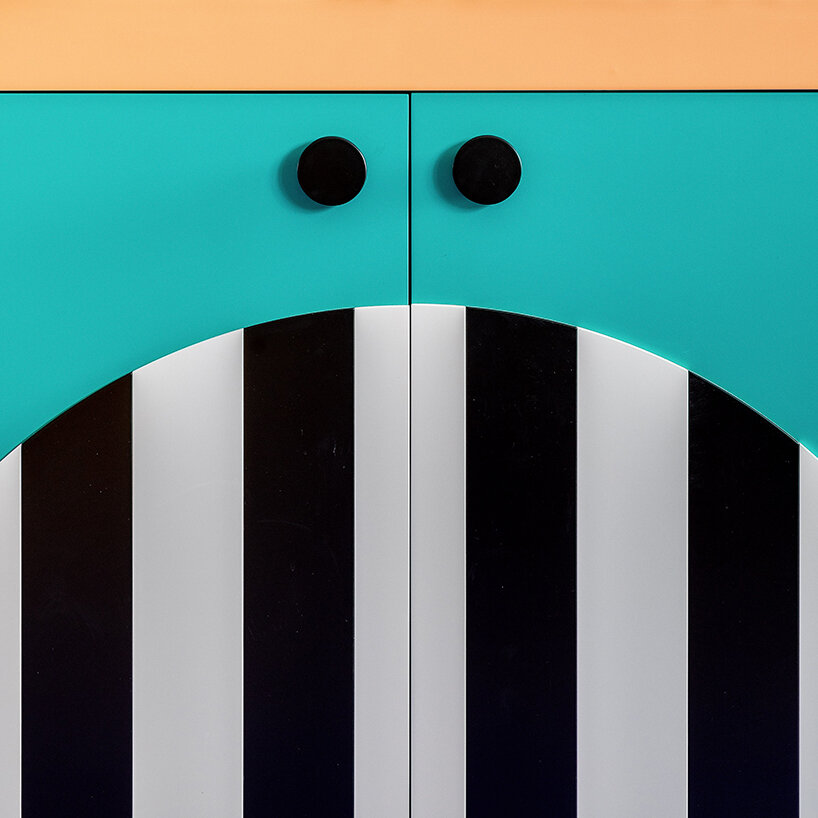
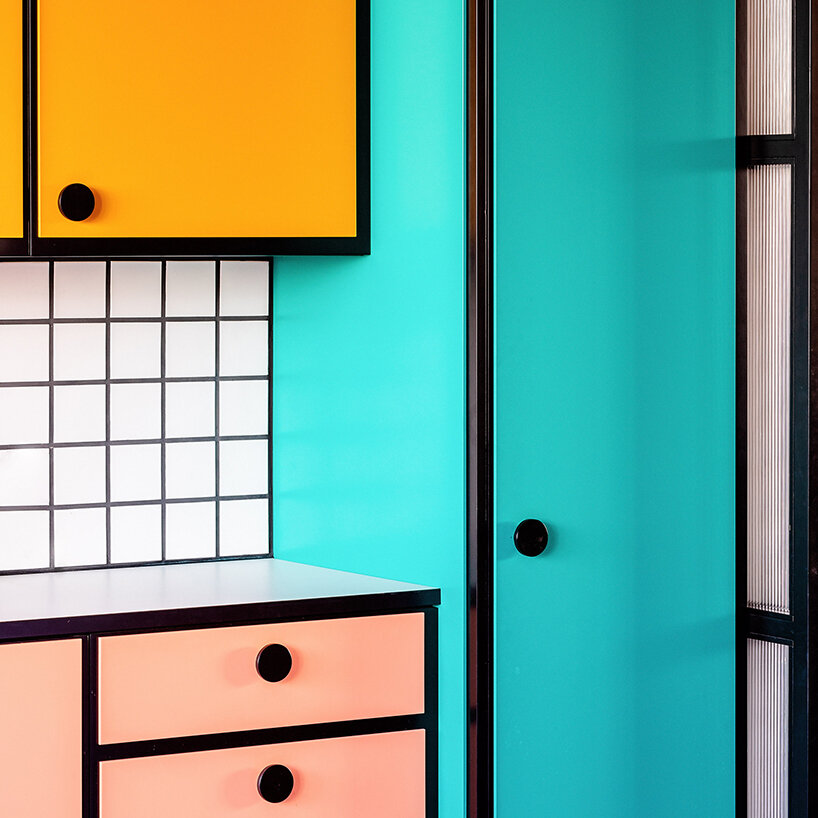
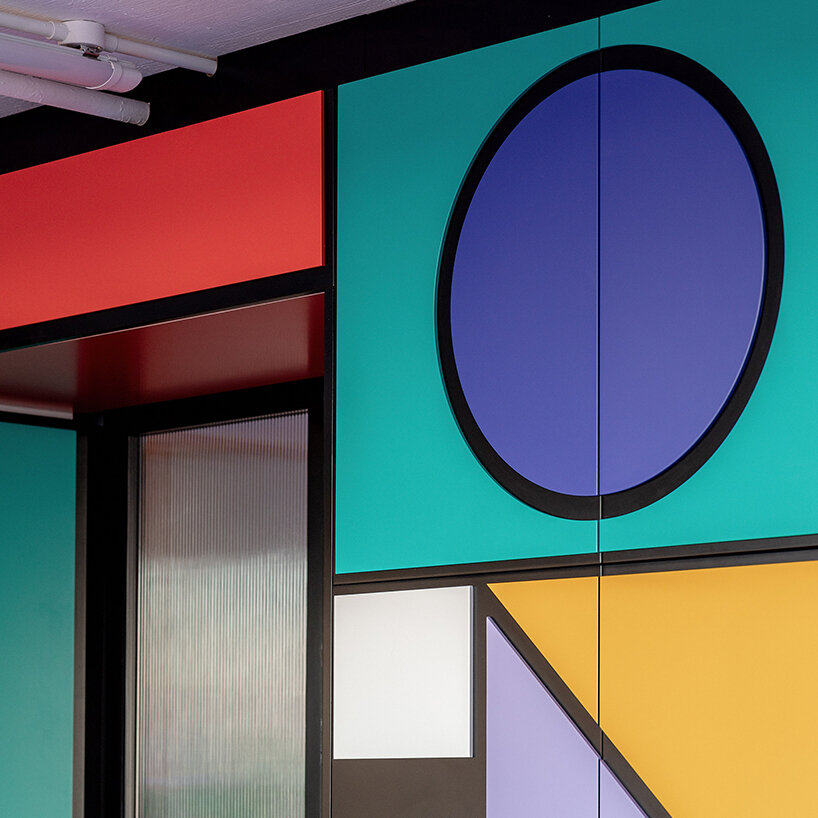
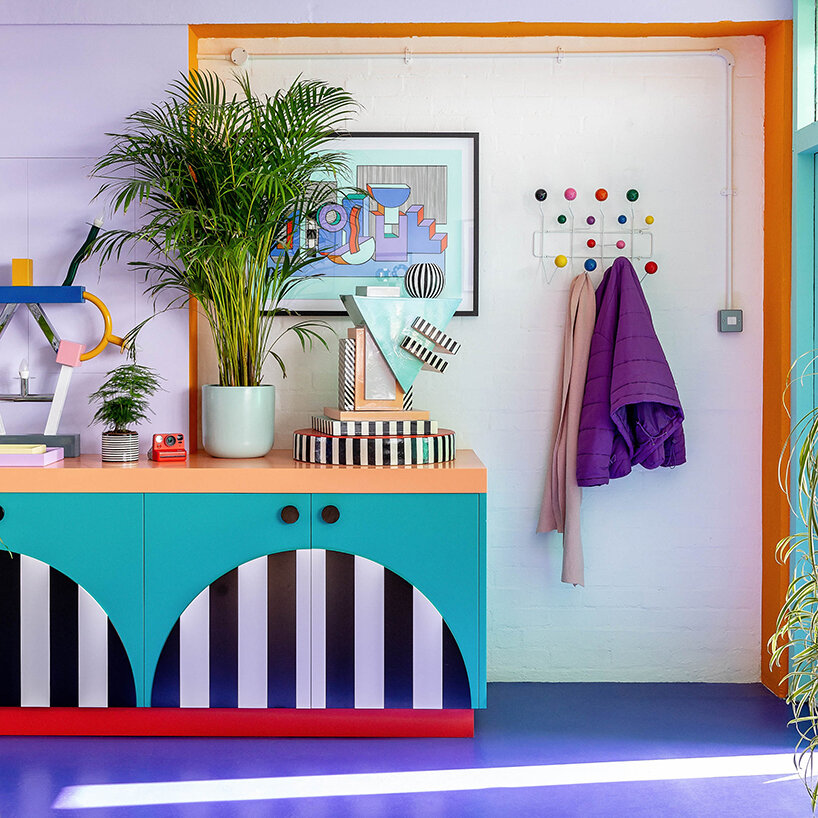
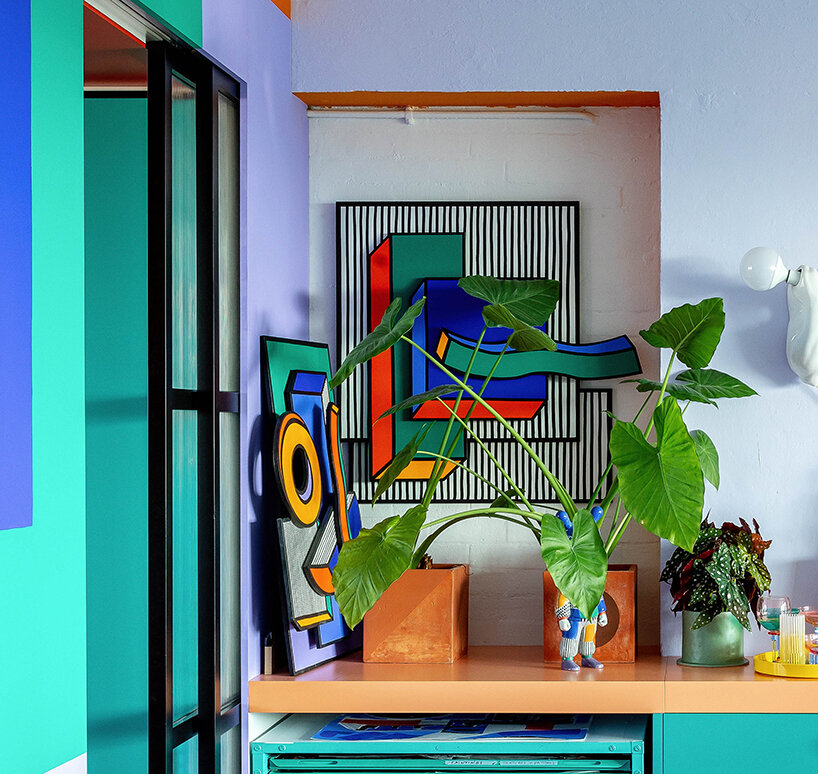
project info:
name: Camille Walala | @camillewalala studio
location: Regents Studio, London, UK
design: Our Department
photography: Taran Wilkhu | @taranwilkhu
happening now! thomas haarmann expands the curatio space at maison&objet 2026, presenting a unique showcase of collectible design.
